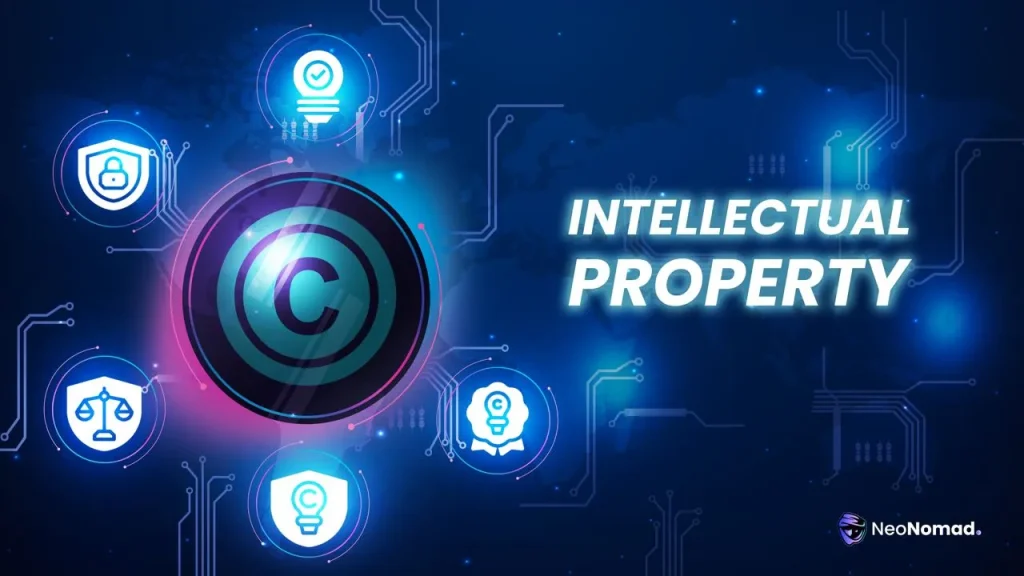Blockchain technology, known primarily for its role in cryptocurrencies, is making waves in various sectors, including intellectual property (IP). By providing a decentralized and immutable ledger, blockchain offers innovative solutions for managing, protecting, and verifying IP rights. This article explores how blockchain is transforming the landscape of intellectual property, its applications, benefits, challenges, and future potential.

Understanding Blockchain Technology
Blockchain is a distributed ledger technology that records transactions across a network of computers. Each transaction is grouped into a “block” and linked to the previous block, forming a “chain.” This chain is maintained by a network of nodes, ensuring transparency, security, and immutability. Blockchain’s key features—decentralization, transparency, and security—make it a promising tool for managing intellectual property.
1. Key Features of Blockchain:
- Decentralization: Blockchain operates on a peer-to-peer network, eliminating the need for a central authority. This reduces the risk of fraud and tampering.
- Transparency: All transactions are recorded on a public ledger that can be accessed by authorized parties, providing visibility into IP ownership and usage.
- Immutability: Once recorded, transactions cannot be altered or deleted, ensuring the integrity and permanence of IP records.
Applications of Blockchain in Intellectual Property
Blockchain technology offers several applications for intellectual property management, addressing key challenges in ownership verification, rights enforcement, and royalty distribution.
1. IP Ownership and Verification:
- Digital Ownership Records: Blockchain can create a secure and verifiable record of IP ownership. By recording IP assets on a blockchain, creators can establish proof of ownership and authenticity.
- Proof of Creation: Blockchain enables creators to timestamp their work, providing irrefutable evidence of creation and originality. This helps protect against plagiarism and unauthorized use.
2. Licensing and Rights Management:
- Smart Contracts: Smart contracts are self-executing contracts with the terms written into code. Blockchain-based smart contracts automate licensing agreements, ensuring that terms are met and royalties are distributed according to predefined conditions.
- Automated Licensing: Blockchain can streamline the licensing process by providing a transparent and efficient platform for managing rights and permissions. Creators and licensees can interact directly through blockchain-based platforms, reducing intermediaries and associated costs.
3. Royalty Distribution:
- Transparent Transactions: Blockchain’s transparency ensures that royalty payments are made accurately and promptly. All transactions are recorded on the blockchain, providing a clear audit trail and reducing the risk of disputes.
- Real-Time Payments: Smart contracts enable real-time royalty payments, eliminating delays and ensuring that creators receive their due compensation quickly.
4. Digital Rights Management (DRM):
- Secure Distribution: Blockchain can enhance digital rights management by providing a secure and immutable record of content distribution. This helps prevent unauthorized access and distribution of digital assets.
- Access Control: Blockchain can be used to manage access to digital content, ensuring that only authorized users can view or use protected works.
5. Trademark Protection:
- Trademark Registration: Blockchain can simplify the trademark registration process by providing a transparent and immutable record of trademark applications and registrations.
- Trademark Monitoring: Blockchain can be used to monitor and enforce trademark rights, detecting and addressing unauthorized use or infringement.

Benefits of Blockchain for Intellectual Property
The integration of blockchain technology into intellectual property management offers several key benefits:
1. Enhanced Security:
- Fraud Prevention: Blockchain’s immutability and decentralized nature reduce the risk of fraud and unauthorized alterations to IP records.
- Data Integrity: The secure and transparent nature of blockchain ensures the integrity and accuracy of IP ownership and usage records.
2. Increased Transparency:
- Visibility: Blockchain provides a clear and accessible record of IP ownership, licensing agreements, and royalty payments, enhancing transparency and accountability.
- Auditability: The transparent nature of blockchain allows for easy auditing of IP transactions and agreements, facilitating compliance and dispute resolution.
3. Streamlined Processes:
- Efficient Licensing: Blockchain-based smart contracts automate and streamline licensing processes, reducing administrative burdens and transaction costs.
- Simplified Royalties: Blockchain enables real-time and automated royalty payments, improving efficiency and reducing delays.
4. Reduced Costs:
- Lower Transaction Fees: Blockchain reduces the need for intermediaries, resulting in lower transaction fees and administrative costs.
- Minimized Disputes: The transparency and immutability of blockchain reduce the likelihood of disputes over IP ownership and usage.
Challenges and Considerations
Despite its advantages, the adoption of blockchain for intellectual property faces several challenges:
1. Technical Complexity:
- Integration: Integrating blockchain technology with existing IP management systems may require significant technical expertise and resources.
- Scalability: Blockchain networks may face scalability issues, particularly when handling large volumes of transactions and data.
2. Legal and Regulatory Issues:
- Regulatory Uncertainty: The legal framework for blockchain-based IP management is still evolving, and regulatory uncertainty may pose challenges for adoption and compliance.
- Jurisdictional Issues: IP laws and regulations vary by jurisdiction, and coordinating blockchain-based IP management across different regions may be complex.
3. Data Privacy:
- Confidentiality: While blockchain provides transparency, it is essential to ensure that sensitive IP information is protected and that privacy concerns are addressed.
- Data Security: The security of blockchain networks must be robust to prevent unauthorized access and potential breaches.
4. Adoption Barriers:
- Industry Resistance: Traditional IP management practices may resist adopting new technologies, and convincing stakeholders to embrace blockchain may require overcoming significant inertia.
- Education and Training: Implementing blockchain for IP management may require training and education for legal professionals, creators, and other stakeholders.
Future Prospects
The future of blockchain in intellectual property is promising, with several potential developments on the horizon:
1. Increased Adoption:
- Widespread Use: As blockchain technology matures, it is likely to see increased adoption in various aspects of IP management, from registration to enforcement.
- Industry Collaboration: Greater collaboration between technology providers, legal professionals, and IP stakeholders will drive innovation and integration of blockchain solutions.
2. Enhanced Interoperability:
- Cross-Platform Integration: Efforts to improve interoperability between blockchain platforms and traditional IP management systems will facilitate smoother integration and broader adoption.
- Global Standards: Development of global standards and frameworks for blockchain-based IP management will address regulatory and jurisdictional challenges.
3. Advanced Applications:
- AI Integration: Combining blockchain with artificial intelligence (AI) could further enhance IP management by enabling more sophisticated analysis, prediction, and automation.
- Decentralized Marketplaces: Blockchain could support the creation of decentralized marketplaces for buying, selling, and licensing IP assets, providing new opportunities for creators and investors.

Conclusion
Blockchain technology has the potential to revolutionize intellectual property management by providing enhanced security, transparency, and efficiency. From verifying ownership and automating licensing agreements to streamlining royalty distribution and protecting digital rights, blockchain offers innovative solutions that address many challenges in the IP sector. While challenges related to technical complexity, legal frameworks, and adoption remain, the future of blockchain for intellectual property holds significant promise for transforming how IP is managed, protected, and utilized. As technology evolves and adoption grows, blockchain will likely play an increasingly important role in shaping the future of intellectual property.


